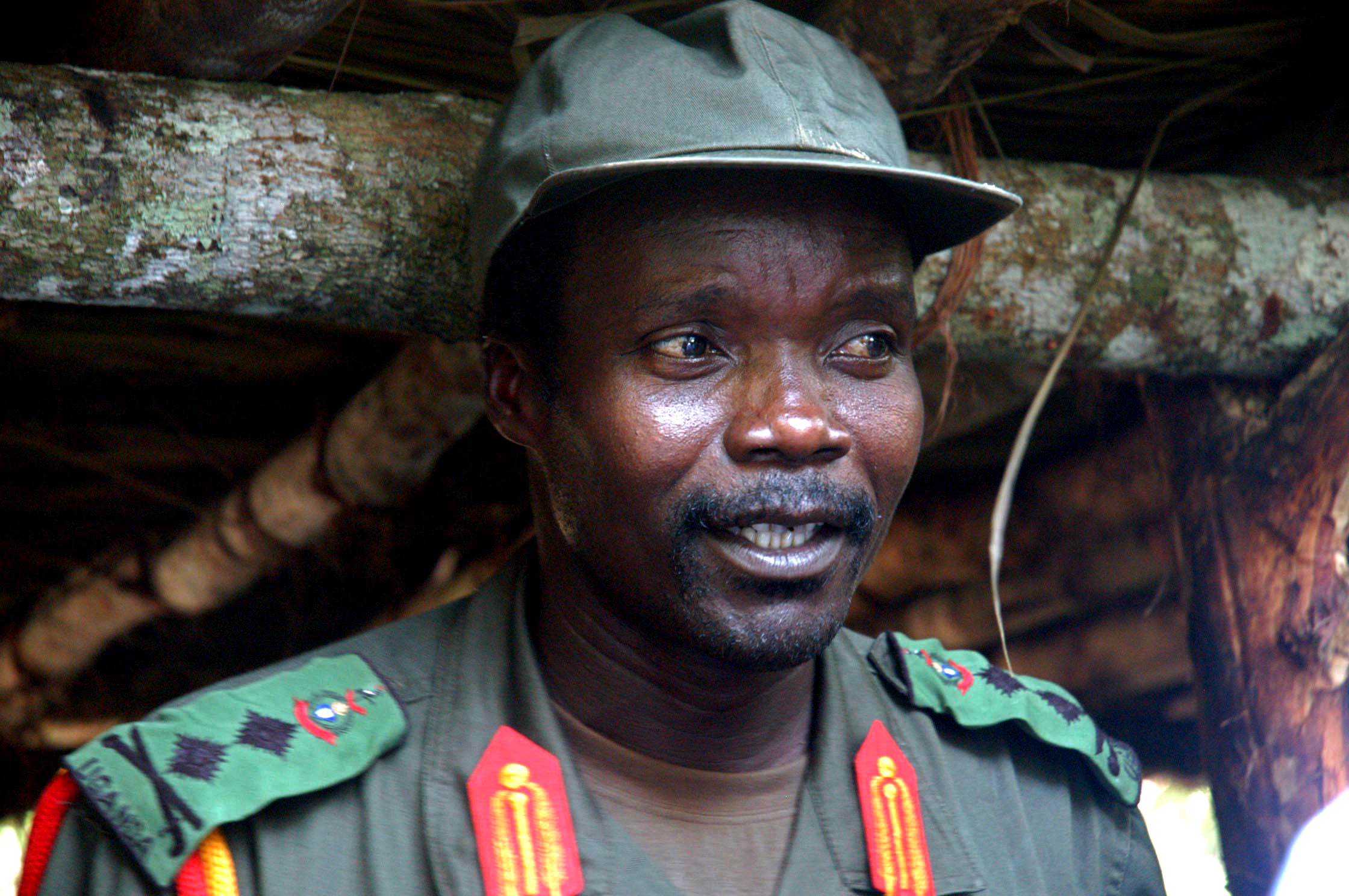Joseph Kony awareness video gets millions of views around the Internet
Thursday, March 8, 2012
 This July 31, 2006 file photo shows Joseph Kony, leader of the Lord's Resistance Army, during a meeting with a delegation of 160 officials and lawmakers from northern Uganda and representatives of non-governmental organizations in Congo near the Sudan border. An activist group based in Southern California is getting worldwide attention for a video that documents wartime atrocities in Africa. The film released Monday, March 7, 2012 is part of an effort called KONY 2012. It targets the Lord's Resistance Army and its leader, Joseph Kony, a bush fighter wanted by the International Criminal Court for crimes against humanity. (AP Photo, File)
This July 31, 2006 file photo shows Joseph Kony, leader of the Lord's Resistance Army, during a meeting with a delegation of 160 officials and lawmakers from northern Uganda and representatives of non-governmental organizations in Congo near the Sudan border. An activist group based in Southern California is getting worldwide attention for a video that documents wartime atrocities in Africa. The film released Monday, March 7, 2012 is part of an effort called KONY 2012. It targets the Lord's Resistance Army and its leader, Joseph Kony, a bush fighter wanted by the International Criminal Court for crimes against humanity. (AP Photo, File)Click here to view the Kony 2012 video on youtube.
KAMPALA, Uganda - If Joseph Kony lived in relative anonymity before this week, he's an Internet star now.
A video about the atrocities carried out by Kony's Lord's Resistance Army has become viral, racking up millions more views seemingly by the hour.
The marketing campaign is an effort by the advocacy group Invisible Children to vastly increase awareness about a jungle militia leader who is wanted for atrocities by the International Criminal Court and is being hunted by 100 U.S. Special Forces advisers and local troops in four Central African countries.
The group's 30-minute video, which was released Monday, had more than 21 million views on YouTube by Thursday. The movie is part of an effort called KONY 2012 that targets Kony and the LRA.
"Kony is a monster. He deserves to be prosecuted and hanged," said Col. Felix Kulayigye, the spokesman for Uganda's military.
But Kulayigye said that Kony's forces - once thousands strong - have been so degraded that he no longer considers him a threat to the region. Because of the intensified hunt for Kony, his forces split into smaller groups that can travel the jungle more easily. Experts estimate that the LRA now has only about 250 fighters. Still, the militia abducts children, forcing them to serve as soldiers or sex slaves, and even to kill their parents or each other to survive.
Uganda, Invisible Children and (hash)stopkony were among the top 10 trending terms on Twitter among both the worldwide and U.S. audience on Wednesday night, ranking higher than New iPad or Peyton Manning. Twitter's top trends more commonly include celebrities than fugitive militants.
Ben Keesey, Invisible Children's 28-year-old chief executive officer, said the viral success shows their message resonates and that viewers feel empowered to force change. It was released on the website, www.kony2012.com.
"The core message is just to show that there are few times where problems are black and white. There's lots of complicated stuff in the world, but Joseph Kony and what he's doing is black and white," Keesey said Wednesday.
The burst of attention has also brought with it some criticism of Invisible Children's work on Internet sites, including the ratio of the group's spending on direct aid, its rating by the site Charity Navigator, and a 2008 photo of three Invisible Children members holding guns alongside troops from the country now known as South Sudan.
Invisible Children posted rebuttals to the criticism on its website.
Kony's Ugandan rebel group is blamed for tens of thousands of mutilations and killings over the last 26 years.
Last year, Invisible Children began installing high frequency radios in Africa's remotest jungle to help track militia attacks in Congo, Central African Republic and South Sudan. People in areas without phones can report attacks on the radios to people who put them on a website called the LRA Crisis Tracker.
Invisible Children's efforts to recruit support from U.S. political leaders appears to have paid off. Last year the State Department called the group's Crisis Tracker "a really innovative tool" for information sharing. A U.S. military spokesman said the U.S. military is also aware of the Crisis Tracker.
